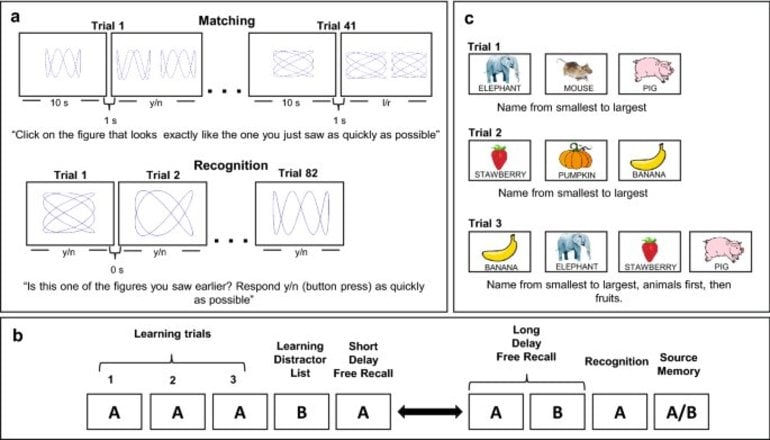Summary: Cocoa flavanols, naturally occurring compounds in cocoa beans, may help improve cognition and memory in older people.
Source: Alzheimer’s Research UK
A clinical trial has shown that in older people, a diet supplemented with cocoa flavanols– naturally occurring compounds found in cocoa beans—may improve performance on a specific memory task. The study is published on Monday 15 February in the journal Scientific Reports.
Researchers from Columbia University and New York University recruited 211 healthy people aged 50-75 for the trial, which lasted for 12 weeks. At the start and end of the study, participants undertook a series of cognitive tests to assess their thinking and memory and a subset of the participants were given an MRI scan to measure blood flow in the brain. During the trial, the participants were divided into four groups and given different levels of a supplement containing cocoa flavanols:
- Placebo (0 mg of Flavanols per day)
- low intake (260 mg)
- Medium intake (510 mg)
- high intake (770 mg).
Dr. Susan Kohlhass, Director of Research at Alzheimer’s Research UK, said:
“This small trial highlights some possible effect of flavanols found in cocoa beans over a short time period, but we’d need to see much longer, large-scale studies to fully understand whether a diet high in these flavanols could boost cognition in old age. We also don’t know how meaningful the improvements measured in the tests used here would be for people in their daily lives.
“While the researchers found that by the end of the study, those on a high-flavanol diet performed better in a list-learning task compared to the placebo group, they did not find a relationship between flavanol intake and performance on two other cognitive tests, one of which was the primary endpoint for the study. There was no effect of 12 weeks of flavanol supplementation on blood flow to the region of the brain the researchers had identified in advance of the study.

“This study didn’t look at dementia, and we can’t know from this research whether a diet high in cocoa would have any effect in either preventing or delaying the onset of the condition. The study used cocoa flavanol supplements provided to participants in capsule form. While cocoa beans are the basis for chocolate, chocolates are not a reliable source of flavanol compounds and this study does not suggest that eating chocolate is good for our cognitive health.
“The study was partly supported by MARS, Inc. the company that produces Mars bars and a range of other chocolate products.
“Continued investment in research is crucial to find ways to protect the brain and reduce the risk of diseases that cause dementia. Although there’s currently no certain way to prevent dementia, research shows that a healthy lifestyle can help keep our brains health as we age. A healthy diet, regular exercise, not smoking, and keeping blood pressure and weight in check can all help lower the risk of dementia.
“We must do all we can to help people take action in support of their brain health. That’s why Alzheimer’s Research UK has launched the Think Brain Health campaign as an important first step.”
About this aging and memory research news
Source: Alzheimer’s Research UK
Contact: Press Office – Alzheimer’s Research UK
Image: The image is credited to Alzheimer’s Research UK
Original Research: Open access.
“Insights into the role of diet and dietary flavanols in cognitive aging: results of a randomized controlled trial” by Sloan, R.P., Wall, M., Yeung, LK. et al.. Scientific Reports
Abstract
Insights into the role of diet and dietary flavanols in cognitive aging: results of a randomized controlled trial
With the world’s population aging, age-related memory decline is an impending cognitive epidemic. Assessing the impact of diet on cognitive aging, we conducted a controlled, randomized, parallel-arm dietary intervention with 211 healthy adults (50–75 years) investigating effects of either a placebo or 260, 510 and 770 mg/day of cocoa flavanols for 12-weeks followed by 8-weeks washout. The primary outcome was a newly-developed object-recognition task localized to the hippocampus’ dentate gyrus. Secondary outcomes included a hippocampal-dependent list-learning task and a prefrontal cortex-dependent list-sorting task. The alternative Healthy Eating Index and a biomarker of flavanol intake (gVLM) were measured. In an MRI substudy, hippocampal cerebral blood volume was mapped. Object-recognition and list-sorting performance did not correlate with baseline diet quality and did not improve after flavanol intake. However, the hippocampal-dependent list-learning performance was directly associated with baseline diet quality and improved after flavanol intake, particularly in participants in the bottom tertile of baseline diet quality. In the imaging substudy, a region-of-interest analysis was negative but a voxel-based-analysis suggested that dietary flavanols target the dentate gyrus. While replication is needed, these findings suggest that diet in general, and dietary flavanols in particular, may be associated with memory function of the aging hippocampus and normal cognitive decline.







